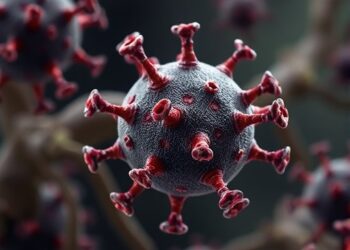Sustainably reducing inappropriate IV use by more than a third
Sustainably reducing inappropriate IV use by more than a third
Reasearch led by Amsterdam UMC, across more than 5 years and 1100 patients has demonstrated a strategy for reducing inappropriate IV use by a third, an effect that was sustained across the five-year period. This should also lead to reduction in the associated infections that effect one in ten patients. These results are published today in The Lancet eClinicalMedicine.
“Infections caused by both IVs and catheters occur in more than 10% of patients and studies indicate that up to a quarter are not necessary. Simply, this means that patients are placed at an unnecessarily high risk of infection. This can delay, or even hamper their recovery,” says Suzanne Geerlings, professor of internal medicine at Amsterdam UMC.
In order to combat this the research team published in 2017 a strategy in the Lancet Infectious Diseases. This strategy resulted in a 37% reduction in the number of unnecessary or, inappropriately used, catheters.
“When we speak of inappropriate use, this usually refers to catheters that are placed for too long or, in the case of urinary catheters, when there is insufficient support for the patient,” adds Geerlings.
Across the 1113 patients included in the study, 962 received an IV catheter, typically used for the administration of fluids, with the remaining 151 receiving a urinary catheter with the remaining 962 receiving an IV catheter.
“What is really interesting is that no study has ever looked at how lasting these recommendations are, and this is true for many new strategies in the healthcare sector. In this case, we see clearly that the effects were sustained over last five years,” says Geerlings.
The what, now the why
To understand why their strategy continued to work, the research team carried out interviews with 18 healthcare professionals across the Netherlands. These interviews revealed that the strategy had permanently altered the workflow in four of the five hospitals included in the study.
“By talking with those ‘on the ground’, we learned what worked and, perhaps more crucially, what didn’t,” says Tessa van Horrik, researcher at Amsterdam UMC and the first author the study.
“The main barriers to maintaining the strategy were a combination of other priorities, a shortage of time, of personnel or of both and, understandably, in some cases, there was simply no one to lead the implementation across the five-year period. This shows us that the strategy can work, as long as the resources are there.” adds van Horrik.
Although, the study also demonstrated that these resources need not be permanent. It was demonstrated that a temporary investment, in either time or leadership, was sufficient to reduce the unnecessary or inappropriate use of IVs and catheters.
Journal
EClinicalMedicine
Method of Research
Observational study
Subject of Research
People
Article Title
Five-year sustainability of a de-implementation strategy to reduce inappropriate use of catheters: a multicentre, mixed-methods study
Article Publication Date
16-Aug-2024




